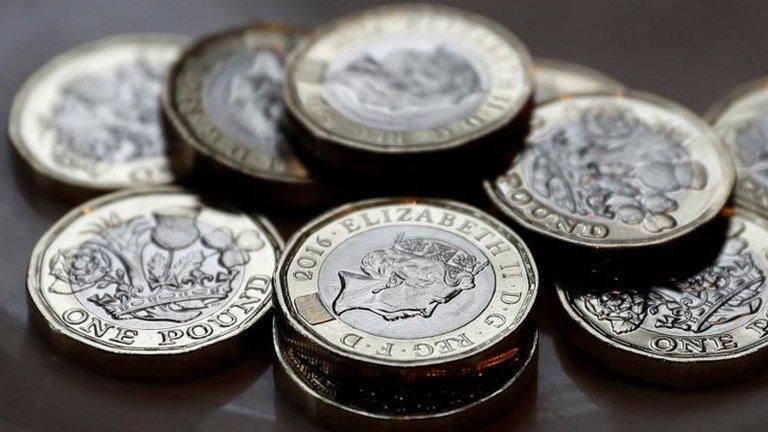Banks warned on ballooning consumer borrowing
- Published
- comments

Car finance borrowing is rising rapidly
Ultra low interest rates were put in place after the financial crisis to stop a recession turning into a depression.
Many believe they worked.
Alongside a huge money-printing exercise to keep the financial system operating.
Some of the consequence of those policies are now becoming clear.
A struggling economy has meant income growth has been low, and at present, real incomes are falling as inflation approaches 3%.
Millions of consumers are resorting to borrowing to maintain their economic standing.
If you exclude mortgages, consumers are now borrowing 10% more than they were last year.
The total amount of borrowing now stands at £198bn.
Houses and motors
The fastest growth has been in car financing, with dealers encouraging people to buy new cars by lending at low interest rates and then asking for a "balloon payment" at the end of the loan period to complete the car purchase.
Car finance borrowing is rising at 15%.
Credit card borrowing is also up, at around 10%.
And general loans, for example for a house extension, are rising at a little under 10%.
These are the fastest growth rates since 2005.
At the moment the Bank of England is being cautious.
Yes, it is warning High Street banks to take care whom they lend to.
But officials also point out that at present employment rates are high and interest rates are low.
And wage growth is expected to pick up from its present low point of just above 2%, meaning that consumers will be better able to sustain repayments.

General borrowing for things like home extensions has also risen
The total level of consumer borrowing is also low compared with the total level of mortgage lending, which is valued at around £1.3tn.
That is rising at about 2.8% a year, so much more slowly.
Though even here, the Bank says that High Street banks need to take care as loan to value rates creep up.
Cushioned
The Bank is sending out an amber warning.
There are not the red flashing lights apparent before the financial crisis, when over-indebted consumers faced much higher interest rates and banks themselves had very thin cushions of money to protect them from loans that turned bad.
Banks have much more of that money now - called a capital buffer.
But even at "amber", the Bank of England has demanded that they raise it, by £11.4bn over the next 18 months.
And has said that lenders should not be lulled into a false sense of security by the present low interest rates and high employment levels.
The next move in interest rates could be up.
And record high employment levels may not last.
Officials say that the Financial Stability Report today is a warning to banks chasing new customers with loan deals, not to consumers.
But there is a message today for consumers as well.
Take care over how much you borrow - in an uncertain world of Brexit, slowing economic growth and an incomes squeeze, the present benign conditions may not last forever.
- Published26 June 2017
